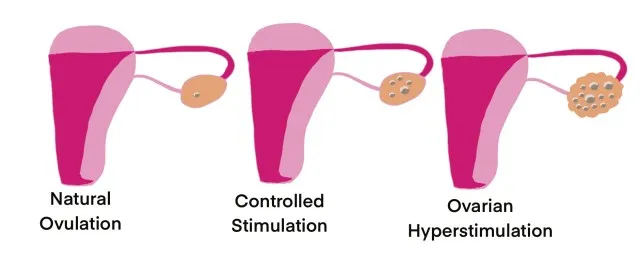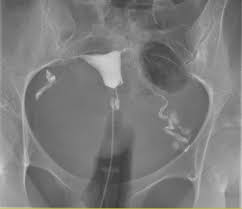Understanding Vaginal Yeast Infections: Causes, Symptoms, and Treatment
Vaginal yeast infections are a common concern for many women, causing discomfort, irritation, and sometimes confusion. While not usually dangerous, they can disrupt daily life and raise questions about sexual health, hygiene, and underlying causes. The good news is that yeast infections are highly treatable, and with the right approach, they can be managed effectively and often prevented in the future.
What is a Vaginal Yeast Infection?
A vaginal yeast infection, also known as candidiasis, is a fungal infection caused primarily by Candida albicans. This fungus naturally lives in small amounts in the vagina, mouth, digestive tract, and skin. When the balance of bacteria and yeast is disrupted, Candida can grow excessively, leading to infection.
Common Causes
There are several reasons why this balance may be disrupted, including:
-
Antibiotic use: Broad-spectrum antibiotics can kill off beneficial bacteria (like Lactobacillus) that keep Candida in check.
-
Hormonal changes: Pregnancy, menstruation, birth control pills, or hormone therapy can alter the vaginal environment.
-
Weakened immune system: Conditions like diabetes or immunosuppressive medications can increase susceptibility.
-
High sugar intake: Yeast feeds on sugar, so a diet high in sugar and refined carbohydrates can encourage overgrowth.
-
Tight or non-breathable clothing: Synthetic fabrics and tight underwear can trap moisture and heat, creating the perfect environment for yeast.
-
Poor vaginal hygiene or over-cleaning: Douching or using scented products can upset the natural pH and microbial balance.
Symptoms to Watch For
Symptoms of a vaginal yeast infection can vary in intensity but often include:
-
Itching and irritation in the vaginal area
-
Thick, white vaginal discharge with a texture similar to cottage cheese
-
Redness and swelling of the vulva
-
Burning sensation during urination or intercourse
-
Soreness or rash around the vaginal area
While these symptoms are typical of a yeast infection, similar signs can appear with other conditions such as bacterial vaginosis or sexually transmitted infections (STIs), so it’s important to get a proper diagnosis before starting treatment.
How is it Diagnosed?
A gynecologist can usually diagnose a yeast infection through a pelvic exam and a sample of vaginal discharge. Microscopic examination or a lab culture helps confirm the presence of Candida and rule out other possible infections.
Treatment Options
Most uncomplicated yeast infections can be treated effectively with antifungal medications. These are available in different forms:
-
Topical creams or suppositories: Applied directly into the vagina (e.g., clotrimazole, miconazole).
-
Oral antifungal pills: Like fluconazole, which is taken as a single dose in most cases.
For recurrent infections (more than four times a year), a longer course of treatment may be recommended, sometimes followed by a maintenance dose.
It’s important to complete the full course of treatment even if symptoms improve early. Avoid self-diagnosing and overusing antifungal medications, as this can lead to resistance or misdiagnosis.
Natural Remedies: Do They Work?
Some women turn to natural remedies like yogurt, probiotics, coconut oil, or boric acid suppositories. While probiotics may help restore the balance of good bacteria, and boric acid may be effective in resistant cases, it’s essential to consult a healthcare provider before trying any home remedy. Not all natural approaches are safe or effective for every individual.
Can Yeast Infections Affect Fertility or IVF?
In general, yeast infections do not cause infertility. However, if left untreated, the inflammation and imbalance in the vaginal flora may impact sperm mobility or create an unfavorable environment for conception. For women undergoing fertility treatments like IVF, maintaining vaginal and overall reproductive health is essential. It’s always wise to report any unusual symptoms to your fertility clinic before procedures like embryo transfer.
Tips for Prevention
While not all yeast infections are preventable, you can reduce your risk with some practical habits:
-
Wear cotton underwear and avoid tight-fitting clothes
-
Avoid douching and use mild, unscented soaps
-
Change out of wet clothing, such as swimsuits or sweaty workout gear, promptly
-
Maintain good hygiene, but don’t over-clean
-
Manage blood sugar levels if you have diabetes
-
Consider using probiotics, especially during or after antibiotic use
Final Thoughts
Vaginal yeast infections are common and usually treatable, but they can be uncomfortable and distressing. Understanding the causes, symptoms, and treatment options can help you manage and prevent future episodes. If you’re experiencing recurrent infections or are unsure about your symptoms, don’t hesitate to consult a healthcare professional. With the right care, you can keep your vaginal health on track and feel comfortable in your body again.
If you would like to know more about this please check the blog post on Cyprus American IVF’s website.\
For any of your fertility problems, please do not hesitate to contact us. At Fertility Solutions we pride ourselves with the excellent tailored personal care we provide to our patients for their specific needs. A team member will contact you as soon as we get your message, and construct a personal treatment plan for your fertility problems in the country of Cyprus. You can also contact our clinics directly through the links below.
Cyprus Crown IVF Contact: https://en.cypruscrownivf.com/contact
Cyprus American IVF Contact: https://www.cyprusamericanivf.com/contact-us/
Dr. Halil Ibrahim Tekin (Dr. HIT) Youtube: https://www.youtube.com/@dr.halilibrahimtekin1715
Cyprus American IVF Youtube: https://www.youtube.com/@AmerikanTupBebekMerkezi




